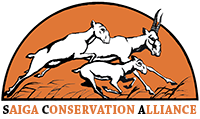From June 5 to 8, 2024, Uzbekistan hosted the traditional “Stikhia” festival of electronic music, art, and science. The festival was initiated in 2017 and has been held in Muynak, Republic of Karakalpakstan, since 2018, aiming to develop the Aral Sea region.
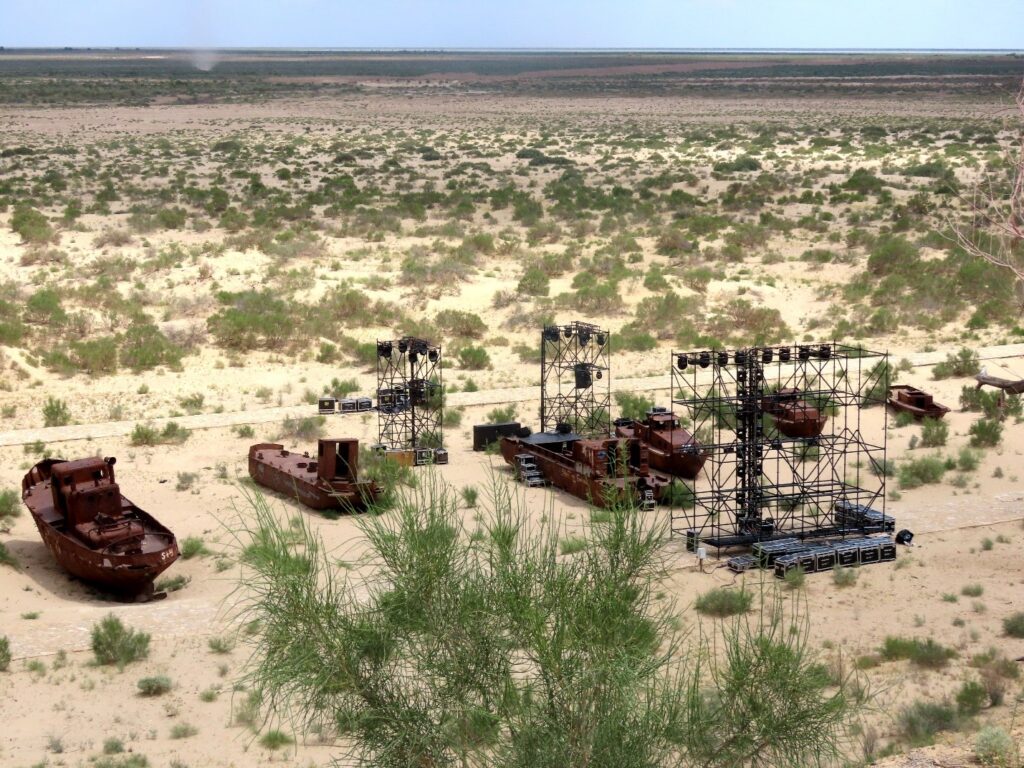
The festival brought together world-renowned musicians, DJs, producers, and artists, as well as scientists from various countries. Participants in the “Resurrection Island” program – Elena Bykova, Alexander Yesipov, and Barno Mammetova – had the opportunity to attend the eco-forum held as part of the festival on June 6-7. The main objective was to share the achievements of the “Resurrection Island” program, carried out under the Darwin Initiative/WFN/PTES projects from 2020 to 2024.
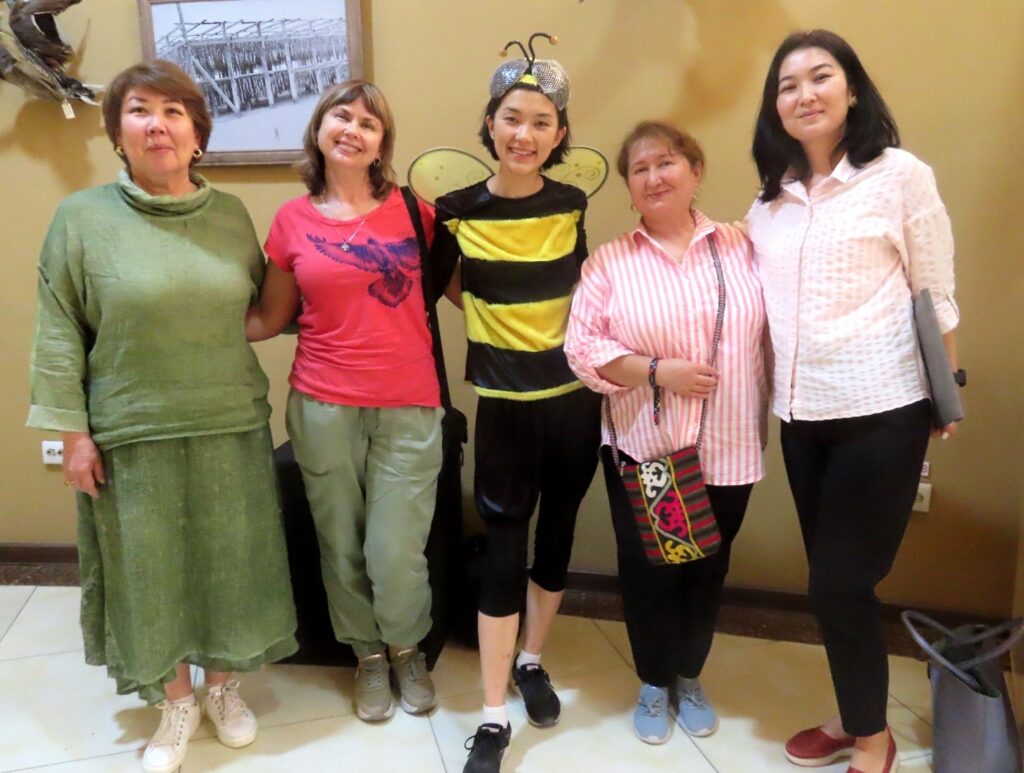
The first panel session focused on connecting two diametrically opposite natural processes – glacier melting and the drying of the Aral Sea. The organizers linked the presentations of glaciologists and sociologists assessing climate change with the evaluations of biologists studying the nature of arid territories like the newly formed Aralkum desert. Glaciologist Khalimjon Mamirov shared data from modern research on the dynamics of glacier melting in the Western Tien Shan. Sociologist Shamshod Yunusov discussed the socio-economic consequences of glacier melting, highlighting its impact on the socio-economic development of Central Asian regions. Zoologist Alexander Yesipov explained that life continues in the new white desert even after the sea’s demise. He provided detailed information about the wildlife of Aralkum, which includes over 160 species of vertebrates, many of which, such as the saiga antelope, caracal, flamingos, and birds of prey, are listed in the Red Book of Uzbekistan and the IUCN Red List.
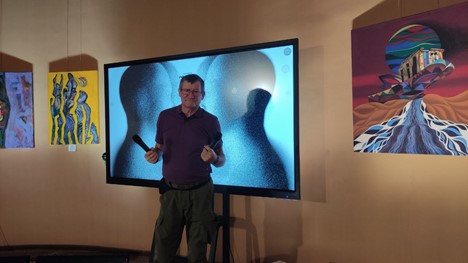
Ecologist Elena Bykova spoke about the creation and future development of the new Aralkum National Park, established in 2022 on the lands of Revival Island and the surrounding dried-up seabed of the Aral Sea. She explained the criteria for selecting the area, described the functional zones of the park, outlined the existing threats, and discussed future development prospects, including the need to create artificial waterholes and nesting sites for birds of prey. Barno Mammetova continued the discussion, addressing the economic development of the region through the promotion of ecotourism, and highlighted the potential, challenges, and prospects for specific tours, the latest being “Extreme Diving in Aralkum,” piloted in May 2024.
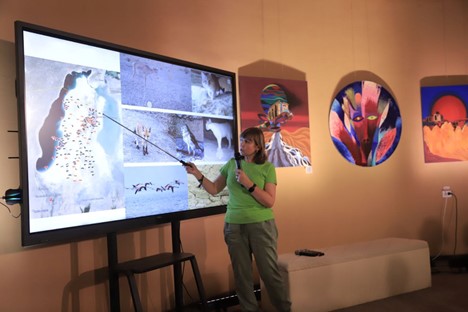
The audience actively participated in the discussions, expressing support for the reintroduction of the kulan and debating the idea of creating a safari park in the recreational zone of the national park. In conclusion, Barno presented a video about the info tour, after which viewers inquired about how and when they could join the diving in Aralkum.
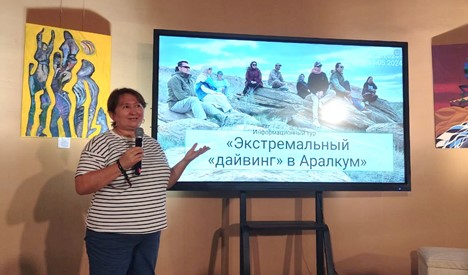
The story of Resurrection Island and the beauty of its unique nature left no one indifferent, as people continue to believe in and hope for the return of water to the Aral Sea.
Photo of A. Yesipov, E. Bykova, S. Shaddinova
